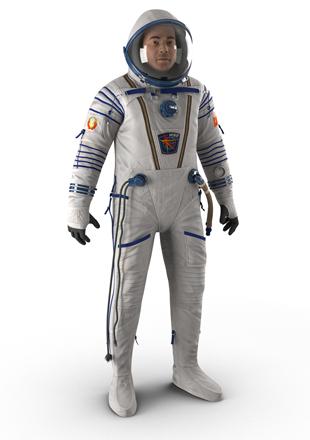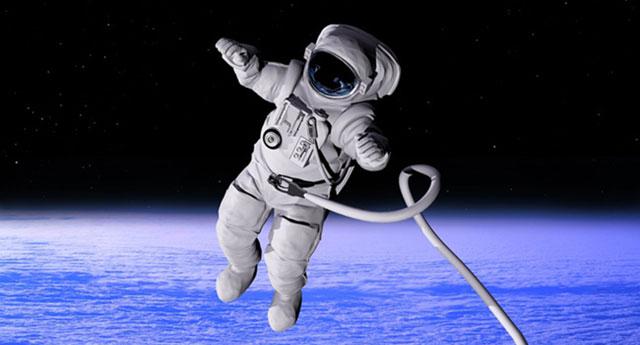You are here
Deep space travel might blow your mind, but it could be bad for your heart
By Los Angeles Times (TNS) - Jul 30,2016 - Last updated at Jul 30,2016

Photo courtesy of turbosquid.com
Bad news would-be astronauts: Travelling into deep space could be bad for your heart.
In a study published Thursday in Scientific Reports, researchers found that astronauts who went to the moon were almost five times more likely to die of cardiovascular disease than astronauts who remained in low-Earth orbit on the International Space Station (ISS).
The findings suggest that leaving the protective fold of the Earth and its magnetic field could be more damaging to the cardiovascular system than was previously thought.
“Space radiation comes in really fast and it creates a lot of damage in tissues,” said Michael Delp, a professor of physiology at Florida State University in Tallahassee and the first author on the paper. “It is more damaging than any radiation on Earth.”
Terrestrial earthlings are protected from deep space radiation in two ways. Most of the charged particles that come zipping through the solar system are deflected by the Earth’s magnetic field, also known as the magnetosphere. However, if a charged particle does make it through this magnetic shield, it runs into the atmosphere and dissipates a lot of its energy — the second line of defence.
Astronauts on the ISS live beyond the Earth’s atmosphere, but still within the planet’s magnetosphere. Astronauts who have flown all the way to the moon, however, are no longer protected by this magnetic shield and are subjected to more space radiation, the authors explain.
To see what type of long-term effect this increased exposure might have on the human body, the authors looked at cause-of-death data for three groups of astronauts — those who had flown in low-Earth orbit, those who flew to the moon, and those who trained as astronauts but never flew in space.
The authors found that 43 per cent of astronauts who went to the moon died of heart disease, compared with just 11 per cent of those who stayed in low-Earth orbit and 9 per cent of those who never flew at all.
They also found that astronauts who ventured beyond the magnetosphere were no more likely to die of cancer than their low-Earth orbit and ground-based counterparts. In all three groups, about 30 per cent of deaths could be attributed to cancer.
“It may be that it would require longer missions for cancer to manifest itself,” Delp said. “If we saw longer exposures to the radiation, we might see a higher mortality rate due to cancer.”
Delp cautioned that the study’s findings come with several caveats. For starters, the sample group was very small. The researchers considered just seven deaths of people who had been to the moon. (An eighth lunar astronaut died after the analysis was complete). The low-Earth orbit group was composed of just 35 people, as was the non-flight astronaut group.
Delp said this is not unusual in space research.
“A lot of studies published both with humans and animals have very small numbers,” Delp said. “It’s the norm rather than the exception, but it means you have to be very cautious in your interpretations.”
He added that the group considered whether or not the findings were worth publishing, but ultimately concluded that they were.
“The numbers are what they are and the stats are what they are,” he said. “But we think it shows that there is a possibility that space radiation has a more adverse effect on the cardiovascular system then we anticipated.”
Several countries around the world, including the United States, Russia, Japan and China, have said that they hope to send people into lunar orbit in the next 10 years, subjecting astronauts to longer periods of exposure to space radiation than those who flew on the Apollo missions.
When asked if he thought his study would give any potential space traveller pause, Delp said: “I don’t think so. I think astronauts are very driven, and very focused and they already take big risks.”
Related Articles
KENNEDY SPACE CENTRE, Florida — From muscle loss to radiation exposure and the psychological effects of confinement, spaceflight takes a tol
AMMAN — Princess Sumaya University for Technology (PSUT) graduate Dr Salem Al Nimri was recently awarded with a NASA Exceptional
Flying people to deep space — like Mars or an asteroid — is high on NASA’s wish list, but research on mice suggested Friday that extended radiation exposure permanently harms the brain.












